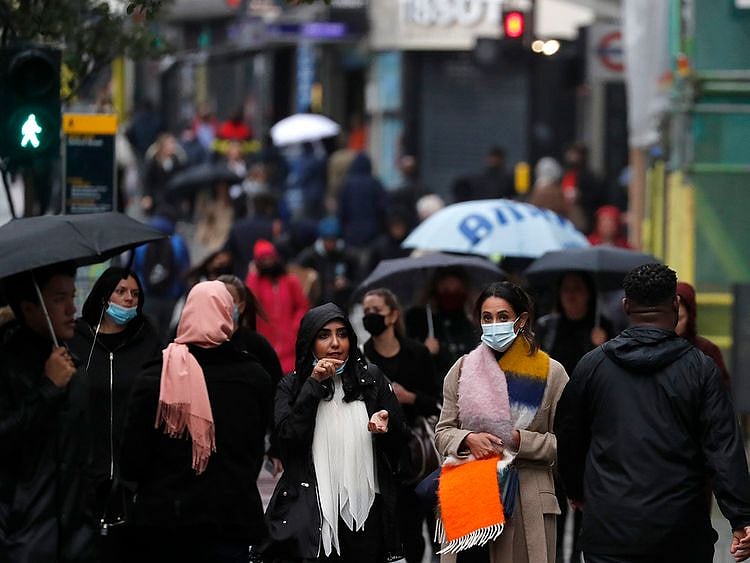UK proposes tightening visa rules to reduce legal migration
New graduate rules and limits on low-skilled visas among changes proposed

LONDON: The British government seeks to tighten visa requirements to curb the number of workers arriving through legal routes, as Prime Minister Keir Starmer attempts to address dissatisfaction over immigration that has led to growing support for the populist Reform UK party.
The measures — outlined in the Immigration White Paper that will be released Monday — propose new graduate level requirements for skilled visa applicants and limits on lower-skilled visas. Changes to deportation and removal rules will also be announced Monday to make it easier to remove foreign criminals committing crimes in the UK.
Starmer has pledged to reduce migration to Britain in response to concerns over the pressure on public services. The issue prompted protests shortly after Labour took office last summer, which descended into right-wing violence, and it’s widely seen as having contributed to wins by Nigel Farage’s Reform party in local elections held recently.
A group will be assigned to identify where industries rely too much on foreign labor, according to a Home Office announcement Sunday. One of the measures will be to grant lower-skilled time-limited visas only on the basis of strong evidence of worker shortages and where employers can commit to increasing domestic skills and recruitment.
What the government doing is “a fundamental shift in the approach to say that the immigration system should be properly linked to skills and training here in the UK,” Home Secretary Yvette Copper told the BBC on Sunday. “Those changes will come in the course of this year and those changes together will lead to, we expect, a reduction of up to 50,000 fewer lower skilled visas over the course of the next year.”
The government will also move to restrict recruitment of foreign care workers. Care work visas can be extended, but employers shouldn’t be recruiting from aboard, Cooper said.
The changes come after an explosion of skilled worker visas, which have tripled since then-Prime Minister Boris Johnson’s government created the program in 2020. The program was framed as a way for the UK to exert more control over its borders after the country left the European Union.
The UK’s net rate of migration remains historically high after hitting a record 906,000 in the year to June 2023. The number of people staying permanently in the UK rose 80% between 2021 and 2024, while the number of dependents entering the UK jumped 360% between 2021 and 2023.
“Those changes will come in the course of this year and those changes together will lead to, we expect, a reduction of up to 50,000 fewer lower skilled visas over the course of the next year.”
The government will also move to restrict recruitment of foreign care workers. Care work visas can be extended, but employers shouldn’t be recruiting from aboard, Cooper said.
The changes come after an explosion of skilled worker visas, which have tripled since then-Prime Minister Boris Johnson’s government created the program in 2020.
The government has been criticized as failing to consider the impact on businesses and for not doing enough to prevent the exploitation of visa holders, such as trafficking or debt bondage “- particularly in the care sector.
On Monday, the Home office will lay out new arrangements where it will be informed of all foreign nationals convicted of offenses “- not just those who receive prison sentences. It will be able to use wider removal powers on other crimes, including swifter action to remove people who have recently arrived in the country but have already committed crimes, according to a separate statement.
Chris Philp, the Conservatives’ shadow Home Secretary, criticize the measures as not going far enough to address the surge in legal migration. He called on Labour to support a binding cap on immigration and his party’s proposal to repeal the entire Human Rights Act from immigration matters.
On Sunday, Cooper declined to set a target for net migration, pointing out that the Conservatives had failed to adhere to previous caps while they were in power.
“You’ll know that we’ve had many targets, promises from Conservative governments in the past, all of which have been broken,” she told the BBC. Still, “we do need to bring net migration down,” she added.
Sign up for the Daily Briefing
Get the latest news and updates straight to your inbox
Network Links
GN StoreDownload our app
© Al Nisr Publishing LLC 2026. All rights reserved.